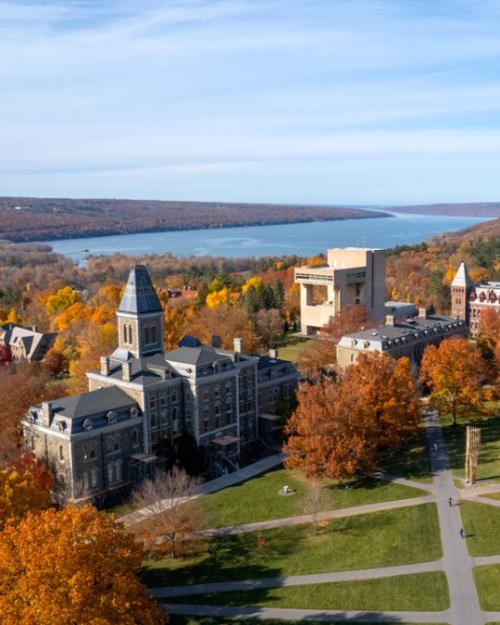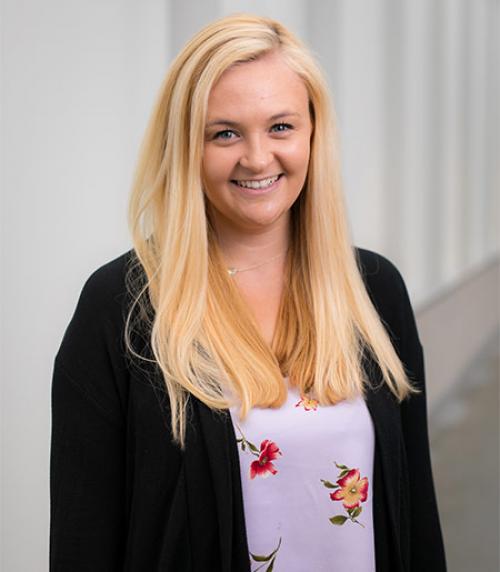Elizabeth Deneen
Statistical Science & Sociology
Chicago, IL
What are the most valuable skills you gained from your Arts & Sciences education?
For me, the goal of a liberal arts education is to develop some sense of intellectual humility. There’s such a thrill in learning a topic in one subject, and then having your understanding totally reformulated by looking at the same topic through a new disciplinary lens. For example, in the Sociology of Health courses that I’ve taken, the goal is to think critically about how social processes affect the way that we as a society construct knowledge about medicine and the body. We often think of the hard sciences as being objective and factual in a way that social science can only strive to be. But in reality, our understanding of scientific concepts like disease evolves over time to reflect the social context of the time period. This explains why, at different points in history, being gay or being trans has been considered a disease: medical knowledge is a method of social control, prescribing the limits of what people can and can’t do. Scientific knowledge is actually quite political, determining what we pathologize and what kind of bodies and lived experiences we consider to be ‘normative.’ Thus, scientific knowledge evolves alongside its political context. Now we know that it’s cruel to write off people’s sexual or gender identity as a medical condition. But there’s nothing to say that there will not continue to be similar massive paradigm shifts in the future. Sociology of Health is a salient example, but I think it represents the general experience of a liberal arts student—constantly learning and unlearning, and realizing that different disciplinary lenses sometimes generate competing truths. You have to learn how to hold those areas of conflict, while still formulating arguments and conclusions. For me, having intellectual humility is not about lacking conviction or never being confident in my beliefs. Rather, it’s about constantly seeking nuance, acknowledging and being aware of what I don’t know, and developing a set of core moral beliefs that serve as the foundation for the rest of my thought.
What is your main extracurricular activity--why is it important to you?
In my sophomore year, I joined the Gender Justice Advisory Committee (G-JAC), formerly the Cornell Women’s Resource Center Executive Board. As a group, we put on our own programming and events, but we primarily focus on dispersing our budget toward smaller student groups through co-sponsorships. I’m really passionate about intersectional feminism and social justice, and through G-JAC, I got to be a part of some of the justice-oriented conversations on campus. I was able to build a community around intersectional feminism and social justice, embedding that interest into my daily life, habits, and relationships.
Who or what influenced your Cornell education the most? How or why?
I’m a huge fan of Cornell’s engaged learning center—embracing the idea that knowledge is not necessarily best accessed through books. Rather, so much knowledge lies in community members and their lived experiences. Accordingly, some of the most rewarding aspects of my education at Cornell were the experiences outside the classroom that built upon more traditional academic knowledge that I gained through coursework. Physically being somewhere and speaking to people is perspective-shifting in a way that books can’t be. There are some types of understanding that you can't gain until you see them or immerse yourself in them. For that reason, I’ve tried to seek out experiences that can complement and build upon some of the things that I’m really passionate about academically. Sometimes this can be really dramatic, unique experiences—I went on a service-learning trip to a domestic violence shelter in Welch, West Virginia, and I’m hoping to go on a trip to visit Zen Buddhist monasteries in Japan this summer through a religious and Asian studies course that I’m taking. But in a more subtle way, it can also be equally valuable to learn from classmates and friends who have personal experience with some topic.
If you were to offer advice to an incoming first year student, what would you say?
I think that a lot of Cornell freshmen begin their year and think that they’re alone in finding it to be hard. It’s a powerful perspective shift to learn that not only is it okay for Cornell to be hard, it’s normal. In fact, part of the whole value in undergrad is that you will find it challenging at times. The point is to eventually learn to lean in to the difficult moments instead of avoiding them, knowing that they are sources of growth and development. Giving yourself permission to struggle is hugely liberating. Not only does it make you happier—feeling less alone and less inadequate—but it also allows you to push yourself in a healthy and productive way. Developing these skills will be valuable for the rest of your life; I think a lot of us would be better off if we knew that part of the value of Cornell is that we are all forced to experience difficulty and failure, sit with that discomfort, and learn how to take care of yourself. It’s not a weird, random subplot in your undergrad career, it’s the whole point.





